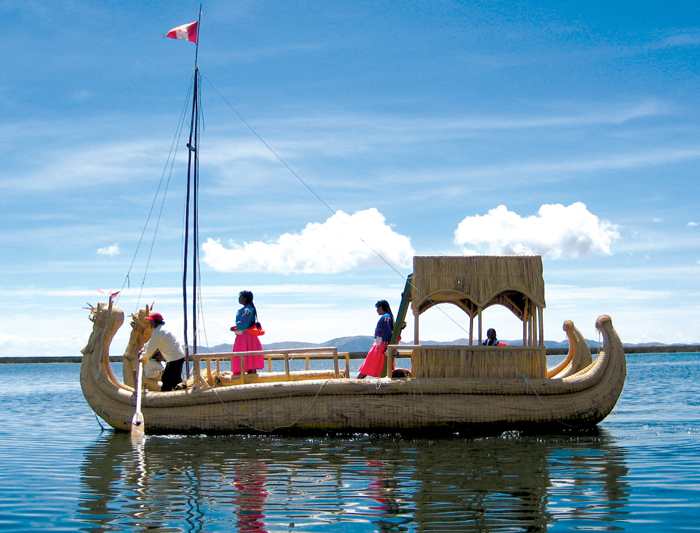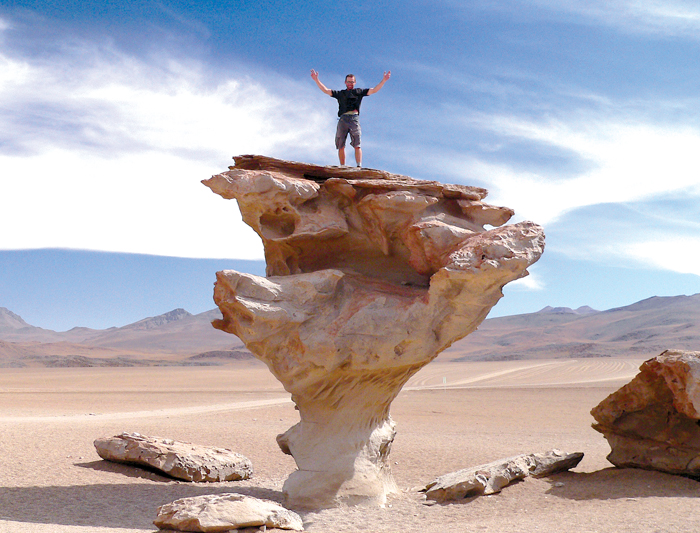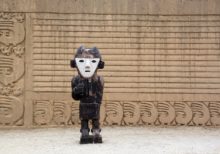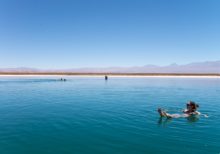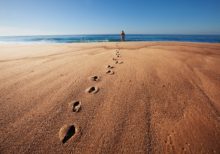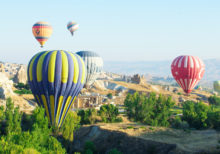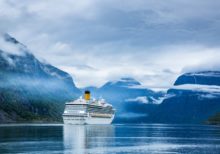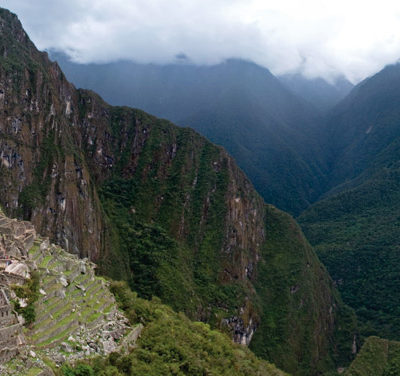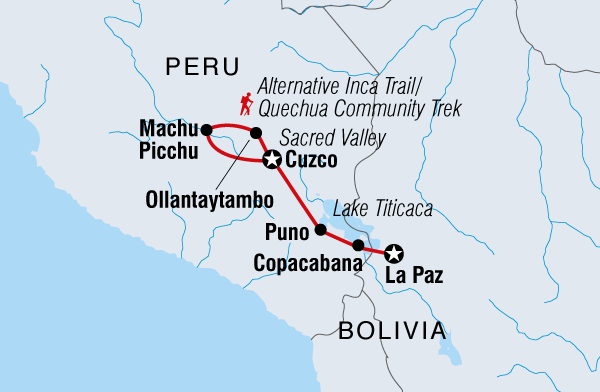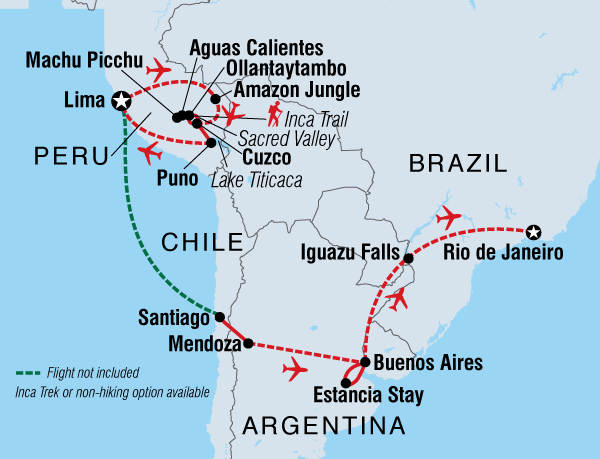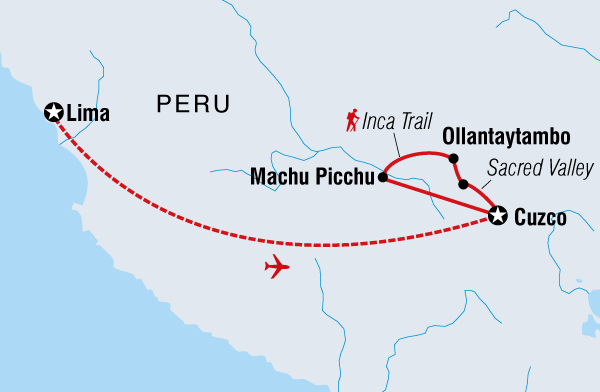| Starts | Lima, Peru |
|---|---|
| Ends | La Paz, Bolivia |
| Region | Peru |
| Duration | 22 days |
| Tour Operator | Intrepid Travel |
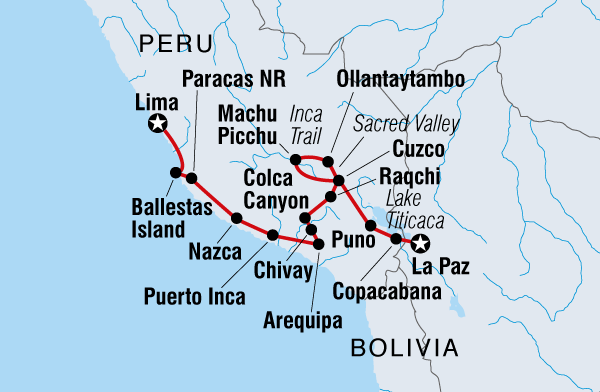
Itinerary
Day 1 - Starting: Lima & Finishing: Lima
Bienvenidos! Welcome to Peru. The trip begins with a group meeting at 6pm. You can arrive at any time as there are no activities planned until this important meeting; please ask the hotel reception where it will take place. If your flight arrives too late, we recommend that you consider arriving a day early and book a night's accommodation prior to the trip so you are able to attend. If you are going to be late please inform the hotel reception. We'll be collecting your insurance details and next of kin information at this meeting so please ensure you have all details on hand to provide to your leader. While Peru's capital officially began life in 1535, when Spanish conquistador Francisco Pizarro founded the city on the Day of the Three Kings, settlements had been scattered through the valley since before the Incas. The city was built on top of an existing palace and temples that belonged to the local chief who had little choice but to move on. Lima was in its prime during the Spanish colonial days and much of the city's attraction now lies in its well-preserved historical centre. If you arrive early, we recommend you take a walk around Miraflores. Go from Central Park (Parque Kennedy) to LarcoMar via Larco Avenue. Alternatively go to Parque del Amor (Love's Park) for a nice view of Lima's beaches. Other things to see and do include a tour to Pachacamac (approx 30 km from downtown Lima), the Museo de la Nacion and the Gold Museum. Limenos (Lima's residents) are friendly and there are plenty of great restaurants and cafes to sample ceviche, a local seafood speciality. ALTITUDE SICKNESS: Parts of your trip go above 2800 metres / 9200 feet where it is common for travellers to experience some adverse health effects due to the altitude - regardless of your age, gender and fitness. It even happened to Sir Edmund Hillary! Before your trip: Some pre-existing medical conditions are known to severely worsen at high altitude and be difficult to adequately treat on the ground, leading to more serious consequences. It is imperative that you discuss your pre-existing medical condition/s with your doctor. We understand certain medications are reported to aid acclimatising to high altitude. Please discuss these options with your doctor. During your trip: While our leaders have basic first aid training and are aware of the closest medical facilities, it is very important that you are aware of the cause and effects of travelling at altitude, monitor your health and seek assistance accordingly. Please read the following document carefully and, during your trip, utilise the table on the back daily to record your own perspective of your general health and any symptoms you may experience: http://d3oxn90f3yphmd.cloudfront.net/sites/default/files/file_attach/52735_product_altitude-sickness.pdf
Day 2 - Starting: Paracas/Ballestas Islands & Finishing: Paracas/Ballestas Islands
We have a very early start and head south and out of Lima to begin a 270 km drive to Paracas. There we board a boat trip to the Ballestas Islands to view wildlife before returning to Paracas to explore the national park. We will bush camp either in Paracas National Park or in Huacachina, Spanning 335,000 hectares of land and sea, Paracas National Park is widely regarded as one of the most important marine reserves in the world. This coastal and marine national park is located on a peninsula in the Pacific Ocean and is home to one of the highest concentration of marine birds in the world. Providing a vital habitat for sea lions and dolphins, Paracas is without doubt one of the most biologically diverse coastal areas in the Americas. The Ballestas Islands has weird and wonderful wildlife. From the boat trip you will be able to see Humboldt penguins, blackish oystercatchers, guano cormorants and Peruvian boobies living alongside vast colonies of sea lions nosily crowding the Ballestas coastline. The startlingly biodiversity around the Ballestas Islands and Paracas National Park is the result of two merging currents; the warm northern waters El Nino and the cooler waters of the Humboldt. The climatic conditions produced by the combination of these two currents create the perfect environment for a proliferation in the number of plankton and phytoplankton, the core constituents in the diet of fish. The Ballestas Islands are one of the most popular ecotourism points of view along the Peruvian coast.
Day 3 - Starting: Nazca & Finishing: Nazca
In the morning we will have a chance to stock up on supplies before driving approximately 200 km to Nazca where we camp. En route we have the chance to glimpse the Nazca lines from a viewing platform. The entire desert in the Nazca area was once home to the ancient Nazca and Paracas cultures which preceded the Incas by over 500 years. Remains of their cultures are still visible - Nazca is home to the famous and enigmatic Nazca lines, enormous designs inscribed in the desert on the arid high plateau. The enormous lines have been etched into the ground by scraping away the top darker layer of gravel which then contrasts with the paler one underneath. Animals, insects and birds are depicted, and some of the simpler line formations are up to 10 km (32 miles) in length. Who drew them, how and why, can only be guessed at, but theories range from alien invaders to complex Nazca calendars.
Day 4 - Starting: Puerto Inca & Finishing: Puerto Inca
This morning there is time for an optional flight over the mysterious Nazca lines. These mysterious shapes are better seen from the air. Small four/six seater planes offer 30 minute flights that allow viewing all 26 figures scattered through the desert floor. Warning! Planes turn sharply from one side to another to facilitate viewing from both sides of the plane. Plastic bags are provided on board but needless to say, this flight is not recommended for those with a weak stomach. A safety note. A number of local operators offer flights over the Nazca lines. It should be noted that there have been numerous safety issues over Nazca in the past – as such Intrepid has used its best endeavors to assess the safety of the operation of some of these companies. While it is impossible to guarantee the safety of air operations, your leader can only assist you to book this activity through companies Intrepid assesses are safer to fly with. Your leader is specifically prohibited from recommending or assisting booking this activity through any other operators. Later we visit the Chauchilla Cemetery. Close to Nazca is the Chauchilla Indian Cemetery, where you can see the tombs of people of the ancient Nazca civilisation, dating from 100AD to 700AD. It is something of an eerie sight to see the skulls, bones and even hair of the dead, preserved in a remarkable state thanks to the dry desert air. In the afternoon we drive 270 km to Puerto Inca for an overnight stay at a beach campsite. Situated in a beautiful bay on the Peruvian coast, Puerto Inca was once the Inca port that supplied the city of Cusco with fish. There are a number of Inca ruins here - including a cemetery and a temple of reincarnation - and part of the road that set out from the coast to Cusco is still clearly visible.
Day 5-6 - Starting: Arequipa & Finishing: Arequipa
A 380 km drive takes us to altitude and to the ‘white city’ of Arequipa where we overnight in a good quality hotel. Standing at the foot of El Misti Volcano and oozing the best of Spanish colonial charm, Arequipa vies with Cuzco for the title of Peru's most attractive city. Built out of a pale volcanic rock called sillar, the old buildings dazzle in the sun, giving the city its nickname - the 'White City'. The main plaza, with its cafes and nearby cathedral, is a lovely place to while away the day. The following day is free to explore Arequipa. No trip to Arequipa would be complete without paying a visit to Juanita, the "Ice Maiden." This mummy of a young Inca girl has been described as one of the 10 most important historical discoveries of recent times by Time Magazine. Because the body was frozen at such low temperatures and high altitude, a really extensive study into the physical health of ancient Peruvian civilisations has been possible, with fascinating results. You should also try to visit the Santa Catalina Convent, which is almost a city within a city in the centre of the town. Not only are the buildings of the convent stunningly beautiful, with brightly painted walls and shady courtyards, it also has a fascinating history which you can learn about on a guided tour.
Day 7-8 - Starting: Chivay/Colca Canyon & Finishing: Chivay/Colca Canyon
There is time this morning to further explore Arequipa, before driving 150 km to Chivay. Tonight perhaps pay an optional visit to the thermal springs. Chivay is home to some natural hot springs that provide a welcome relief from the cold night air high up here in the Andes. The springs are known as "La Calera" and are located just a short distance outside the town. The following day we drive the short distance to the spectacular Colca Canyon to view the condors. The River Colca runs from high in the Andes right down to the Pacific, and between Chivay and Cabanaconde it flows through the bottom of a deep gorge, often claimed to be the deepest in the world. It is certainly spectacularly beautiful, the vast Andean terraces tower up over the canyon, dotted by tiny villages that haven't changed in centuries. The canyon is also renowned as a haven for condors and they can often be seen here at quite close range as they float on the rising thermals and scan for carrion far below. Catching a glimpse of these magnificent birds as they rise from their nests, gliding high above you is a truly magical experience and one you will never forget.
Day 9 - Starting: Raqchi Homestay & Finishing: Raqchi Homestay
Drive day to Raqchi and stay overnight in local homestay. We stay in traditional family houses with clean but basic facilities. Whilst we are there we enjoy some of the ceremonial aspects of village life as well as much singing and dancing. This is a great local experience. A small village situated a short distance outside of Cuzco, Raqchi is well known for its talented craftspeople and the beautiful handmade and intricately decorated pottery that is made here. We stay in Raqchi as guests of the local families in their traditional houses, a fantastic way to get a real insight into how people live here and to learn about their culture and customs. If we are lucky there may be the chance to participate in some of the ceremonial and spiritual aspects of village life - and there is always plenty of singing and dancing as we get to know our new Peruvian families.
Day 10-11 - Starting: Cuzco & Finishing: Cuzco
In the morning we visit the ruins at Raqchi and also a local artisan centre. In the afternoon we drive 160 km to Cuzco. The Cuzco region truly is the heart and soul of Peru. The city itself is the continent's oldest continuously inhabited city and was the home of the Incas for two centuries before the Spanish built their first capital here. Today Cuzco is a fascinating combination of both cultures. Inca-built walls line the central streets and many of the elegant colonial buildings are built on or around Inca foundations. This is a city steeped in history, tradition and legend and is a perfect base for explorations into the Inca world or to enjoy a range of outdoor activities. Take the time to acclimatise to the city's 3,450 m (11,150 ft) altitude and explore the many Baroque churches and ancient temples that dot the city. The following day is free to explore Cuzco. There will be a trekking briefing in the morning to plan the treks for the next few days.
Day 12-15 - Starting: Classic Inca Trail/Quechua Community Trek/Ollantaytambo & Finishing: Classic Inca Trail/Quechua Community Trek/Ollantaytambo
The next 4 days are spent trekking in the Andes. We will begin with a tour of the Sacred Valley before beginning either the Community Trek or the Classic Inca Trail to the world heritage site of Machu Picchu. Please see below for the itineraries of each of these options. We will typically leave Cuzco first thing in the morning and drive to Sacsayhuaman ruins which are just 15 minutess from our hotel. These ruins are best known for the gigantic blocks that make up the zigzag frontal of this fort like construction. There are many theories as to why Sacsayhuaman was originally built and what it was used for but the most likely is that it was a temple complex where offerings were made to appease the gods. Sacsayhuaman is an amazing place and the early morning light makes the great view of the Cuzco rooftops that we get here even more beautiful. We then head further on into the Sacred Valley proper, stopping high on the mountainside to explore the ruins of Pisac. We will walk downhill along small pathways, through ancient arches, storage buildings and houses, learning about the history of the site from our local guide. When we have finished exploring we head down to Pisac town where we have time for lunch and can do a bit of shopping in the extensive handicrafts market that the town is famous for. Here our groups split, and those doing the Community Inca Trek drive up into the highlands of the Cordillera Urubamba. The drive itself is amazing with stunning views as we wind up towards the trailhead. On this trek you return to the Sacred Valley, arriving in Ollantaytambo at the end of your trek, where you are joined by any of your group who prefer not to trek at all for a guided tour of this Inca site, before leaving next morning on the early train for Machu Picchu. Those who choose to trek the Classic Inca Trail will head straight to Ollantaytambo from Pisac, exploring the ruins here that afternoon and camping overnight, heading to the Classic Inca Trail start point early the next morning. PLEASE NOTE THAT IF YOU WISH TO BOOK THE CLASSIC INCA TRAIL THIS MUST BE ADVISED AT TIME OF BOOKING, OTHERWISE YOU WILL AUTOMATICALLY BE BOOKED ON THE COMMUNITY TREK. Full details of the trekking options are below. INCA TRAIL: When people talk about "The Inca Trail", they are usually referring to a particular trekking route that follows a ancient pathway that leads to Machu Picchu. What many people don't realise is that there are a actually a huge number of Inca Trails that criss cross the Urubamba Valley and surrounding mountain ranges, many of which are genuinely remote, rarely used by western tourists, offering a chance to experience the real unspoilt Andes. On all Dragoman overland tours that travel via Cuzco we offer you the choice to trek either the "Classic" Inca Trail or our unique alternative, the Community Inca Trek, which is exclusive to Dragoman (and by the way, it's not the Lares trail that many other operators use!) THE COMMUNITY INCA TREK: Dragoman's Community Inca Trek is a unique trekking route where you'll hike through pristine unspoilt Andean scenery, walking ancient Inca Trails and staying as guests of the local communities as part of our pioneering community-based tourism project, Tarpuy Yachay. This trek is all about getting away from the overcrowded thoroughfares of the Classic Inca Trail and getting out into the real Andes - not to mention being part of a project with provides a genuine, direct benefit to the host communities we travel through, by supporting education, income generation and environmental sustainability projects. The trek itself is about the same as the Classic Inca Trail in terms of length and difficulty, taking three to three and a half days and ascending to about 4800m when you cross the highest pass. The scenery out here is truly magnificent, spectacular mountain peaks, verdant hillsides dotted by isolated villages and the odd llama and alpaca, you are unlikely to see another tourist here. The itinerary: Day 1: Cuzco - Zurite We leave Cuzco first thing in the morning by bus and proceed to Sacsayhuaman for a tour of the ruins. These ruins are best remembered for the gigantic blocks that make up the zigzag frontal of this fort-like construction. There are many theories as to why Sacsayhuaman was originally built and what it was used for, but the most likely is as a temple complex for offerings to appease the gods. It is an amazing place and the early morning light makes the view of Cuzco rooftops even more beautiful as it helps to define the stonework detail. From here we head to Chinchero, a small village in the Sacred Pampa where the locals speak mostly Quechua, the language of the Incas. We will observe a traditional weaving demonstration and tour the archaeological ruins. From here we drive to Waypu Lake where we have an energising picnic lunch. We will then drive to Quillarumpiqoc, the Moon Temple, from which we will hike to Zurite. Here we stay in a homestay with a local family, enjoying a traditional home-cooked meal and gaining an insight into the lifestyle of the locals. Approximate walking time: 5 hours (8 km) Day 2: Zurite to Amaruwatana After breakfast we leave Zurite and head towards Amaruwatana camp. The walk will take us through Qenteqentiyoc (the hummingbird temple), where we can visit and admire this archaeological Inca site. Following the ancient path all the way to the top of our first pass at 4,500 metres, where we will have a dramatic view of both mountain ranges, Vilcabamba and Vilcanota. From here we start walking down on the way to our first camp in the Sambor valley where we will spend the night. Approximate walking time: 8 hours (13 km) Day 3: Amaruwatana to Ancascocha Early in the morning after breakfast we trek for 2 hours to get to our second pass at 4,700 metres; from there we have fantastic views of the rock formations below us. Sometimes it is possible to see Andean ibis, herons, torrent ducks, caracaras, eagles and foxes. After another 2 hours we arrive to a nice highland valley, a place named Kenqo Mayu, or zig-zag river, where glacier water flows through the valley. Our lunch will be at the end of the river, and after lunch we will continue downhill and follow the ancient trail, which goes on a little uphill section which leads us to our campsite in a community called Ancascocha. We will arrive to our campsite in the late afternoon near to a large glacier mountain and glacier stream. If we arrive on time there is an optional hike to the lake, a one hour round trip. Approximate walking time: 6.5 hours (10 km) Day 4: Ancascocha to Ollantaytambo After eating breakfast and breaking camp we start hiking down the Silque Canyon. We will descend by way of the narrow canyon, following a stream that will gradually get bigger. We can observe tall granite walls on the sides of the canyon, populated by a large variety of orchids and bromeliads, filling the environment with magnificent colours when they bloom. We continue on the trail making zig-zags. After crossing many little bridges we will reach the community of Camicancha, where we stop in a nice volcanic rock area, with magnificent views of mount Veronica, a snow capped mountain. From here we are very close to the Chilca community where we finish our trek. A vehicle will transfer us to Ollantaytambo and our hotel. After showers and a little rest, we get ready for the cultural tour of this incredible archaeological site, which is very well known as the Temple of the Sun. Approximate walking time: 5 hours (12 km) Day 5: Ollantaytambo - Machu Picchu After a great nights sleep in our beds we have another early start but this time to catch the train to Aguas Calientes. The early train allows us to get to Machu Picchu before the trains from Cusco arrive. At Aguas Calientes we jump straight on the bus and up to the citadel itself, where we meet the rest of the group. THE CLASSIC INCA TRAIL The "Classic" Inca Trail route usually starts at Kilometre 82 of the Cusco –Machu Picchu railtrack, taking in Abra Warmihuañusca (Dead Woman's Pass, 4200m) and the ruins of Phuyupatamarca and Wiñay Wayna en route, eventually arriving at the Sun Gate above Machu Picchu early in the morning after 3 days of trekking. This route is still extremely popular as it is seen by many as the "original" Inca Trail. It's also probably the best trek to choose if you're really interested in history and archaeology, because of all the other Inca sites it passes along the way. Unfortunately, in recent years the classic trail has almost become a bit of a victim of it's own popularity. It is important to realise that the trail is now very busy, with 500 people starting the trek every day. There are only a certain number of places where it is feasible to camp, so your group will be camped alongside others, and you will meet a lot of other trekkers along the through way. Nevertheless, it is still an awesome trek, passing some stunning scenery from snow-capped peaks to abundant cloud forest, and the sense of achievement you'll have when you catch your first sight of the Lost City of the Incas is something you'll never forget. The itinerary: Day 1 We join the community trekkers for a tour of the sacred valley and enjoy lunch at Pisac. We then head to Ollantaytambo to view more Inca ruins and camp the night. Meals provided:Lunch, Dinner, Snacks Day 2 The following morning after breakfast at the campsite, we catch a bus to the 82 km marker and are joined by a crew of local porters, cook, etc. As we hike from high plateau to dense forest, you will see some remains of ancient villages and temples, the first of which is Llactapata. The starting point of the trek (the 82 km marker) is located at 2,850m above sea level. The trek includes some uphill trekking to the campsite (over 3,000m above sea level). Take advantage during the 4 days of the trek to get to know your porters. You will realise they work the hardest on the team and are gentle people willing to share with you their culture, language and trek experiences. Day 3 This is the most challenging of the trek as we ascend a long steep path (approx 4 hrs) to reach the highest point of our trek, Warmiwañusca, or Dead Woman's Pass, at a height of 4,200 m (13,779 ft), before descending to the Pacaymayo Valley (3650m above sea level. This is 2 hrs downhill). Depending upon on local conditions, you might camp here today, or may need to continue further up and down. We might cross the first and second passes on this day. From the second pass, Runkuracay (3,980m above sea level - 90min uphill) we can enjoy views of the snow-capped Cordillera Vilcabamba before descending to the ruins of Sayacmarca (2 hours downhill). From here it is only a few more minutes to the Chaquicocha campsite (3,620m above sea level). Day 4 On day 3 of the trek, we continue over the third pass and soon reach the beautiful ruins of Phuyupatamarca, the 'Town above the Clouds' (3,850m above sea level/90min uphill). Start descending real Inca Steps (2 hrs) to reach our final night's camp by the Wiñay Wayna, or 'Forever Young' ruins (2,750m above sea level), with panoramic views of the valley below. Day 5 Machu Picchu – Cuzco. Today is only a short final hike (90 min) to Machu Picchu and we climb the steps to the Sun Gate to watch the ruins emerge from the mist below. As with the community trek our guide will show us the most important constructions as well as explain the history and the mythology of this magnificent place. There is some free time to explore the ruins further at your own pace or you can just chill out and watch the hummingbirds or vizcachua. Late afternoon we head back down to Aguas Calientes and take the train back to Ollantaytambo and return to Cuzco for a well-deserved rest. NON-TREKKING PACKAGE: There is also a non trekking option. If you do not want to trek at all but want to take part in the Sacred Valley Tour and guided tour of Machu Picchu, this can be organised however you MUST inform us at time of booking. You will leave Cuzco with your fellow passengers and your tour leader who will be trekking the Community or Classic Inca Trail. You will visit the fortress of Sacsayhuaman, followed by a beautiful scenic drive over mountains and through valleys, via the ancient city of Pisac and on to the Sacred Valley of the Incas. Continuing along the valley, you will pass through the village of Urubamba where you will have lunch with your fellow passengers before heading back to Cuzco. In Cuzco you will stay at our nice, centrally located hotel for a further 3 nights and this will be booked for you by your tour leader. There are no activities booked or organised for you during your time in Cuzco. You will re join some of your fellow travellers and your tour leader on the fourth day in Ollantaytambo, and stay in a hotel in Ollantaytambo overnight. On the fifth day, after an early breakfast we walk to the train station for the 2-hour journey to Aguas Calientes, from where we take a local bus up to Machu Picchu. After a guided tour of the site, there is free time to explore before returning by bus to Aguas Calientes. In the afternoon we catch the train from Aguas Calientes to Poroy, and then a private transfer takes us back to Cuzco. Please also note that there is a possibility that you may be the only person booked on to the non trekking package, however this package will offer you plenty of time in Cuzco to explore the town and surrounding sites (in total 4 or 5 nights depending on your trip). WHICH TREK TO CHOOSE? The Community trek goes through unspoilt mountain scenery and you are unlikely to see any other tourists. Along the way we camp as guests of the villages and get to meet local families and get involved in local community chores and activities. The staff and pack animals that we use on this trek are also all from the local villages so the communities directly benefit from your trekking. In addition, a financial donation is made from the kitty, and matched by Dragoman, for every person who does this trek. It is important however to realise that whilst both treks finish at Machu Picchu on their final day, the Community Trek does not trek right through to the Sun Gate as you do on the Classic Inca Trail. You still arrive before the crowds however, and it is possible to walk up from Machu Picchu to the Sun Gate to take in the famous view. The Classic Inca Trail route is also much better preserved than the trails on the Community Trek. The Classic Inca Trail also sees more ruins along the way than the Community Trek. The Community Trek option is automatically included as part of your trip unless you advise us otherwise. So if you want to take the Community Inca Trek, no further action is required. If you would prefer to trek the Classic Inca Trail, or choose not to trek at all, you must inform us at time of booking. In order to secure Inca Trail permits, it is vital that you provide the correct and most up to date passport information at the time of booking (DOB, passport number, expiry date and name spelling exactly as it appears in the passport that you will be travel with) Any inconsistency between the information provided and the passport you travel with may result in you not being granted access to the Inca Trail. Please note that permits for the Classic Inca Trail are limited and cannot be guaranteed. If they are unavailable you will be booked onto the Community Inca Trek instead.
Day 16-17 - Starting: Machu Picchu/Cuzco & Finishing: Machu Picchu/Cuzco
Today the trekkers and non-trekkers will all meet up for a guided tour of Machu Picchu with a local expert. Following the tour there will be free time to explore the site before catching the train back to Cuzco. Machu Picchu is one of those genuinely magical places, and catching your first glimpse of the lost city of the Incas through the early morning mist is definitely a moment you’ll never forget. The ruins of this forgotten city are stunningly located, perched high in the Andes surrounded by verdant cloud forest, with the river Urambamba running through the gorge far below. Hidden away on a ridge between the mountains, Machu Picchu is invisible from below, so it's no surprise it's ruins remained a secret for so many years. Historians believe the city was probably completely self-contained, surrounded by agricultural terraces sufficient to feed all it's inhabitants and watered by natural springs. It's thought that the city was the location of a royal palace and estate, home to the Inca emperors, or possibly a sacred religious and ceremonial sight. Discovered in 1911 by the explorer Hiram Bingham, although the ruins were heavily covered by dense jungle foliage, many of the buildings were well preserved and in excellent condition. The city consists of more than 200 buildings, from houses to temples, storage buildings and public spaces. It's fascinating to be able to gaze down on the city from above and imagine how it would have looked during the height of the Inca empire. WAYNA PICCHU: Please note, due to Intrepid's internal safety policy our leaders are specifically prohibited from recommending or assisting with booking this activity. The following day is free for you to relax and rest weary legs in Cuzco. Or for those with energy left to burn, try some optional adventure activities such as white water rafting or mountain biking.
Day 18 - Starting: Puno & Finishing: Puno
In the morning we have a 440 km drive to Puno. Located on the shores of Lake Titicaca, Puno is a melting pot of Aymara and Quechuan Indian culture and traditional Andean customs are still strongly represented here. The town is known as the folklore capital of Peru and is famous for its traditional dances. Many festivals are celebrated here, so if you're lucky your visit might coincide with one of the colourful evening parades, when the streets fill with costumed dancers and musicians. En route to Puno we will visit the Sillustani ruins and museum. Tucked away in between the many small villages around Puno are the ruins of Sillustani . These ruined towers are set on a beautiful peninsula near Lake Umayo, built by a pre-Inca civilisation hundreds of years ago. The Sillustani Indians built several "Chullpas", funeral towers whose construction is far more complex than anything the Inca ever built. Each tower would have contained the remains of noble men, buried together with offerings to secure their comfortable passage into the next life.
Day 19-20 - Starting: Lake Titicaca/Copacabana & Finishing: Lake Titicaca/Copacabana
We head out on a boat on Lake Titicaca to the floating reed islands of Uros before a 200 km drive takes us across the Bolivian border to the lakeside town of Copacabana where we overnight in a hotel. A picturesque town on the shores of Lake Titicaca with an amazing Moorish-style cathedral, Copacabana is a great place to people watch especially if you're there over a weekend or on one of the many festivals. On Sundays the town fills with the faithful believers who walk up Cerro Calvario (the hill guarding the town) to make their dreams come true. At the top of the hill numerous stalls sell all manner of miniature material goods from cars and buses through to houses and graduation certificates. The selected items are taken to a small alter where they are blessed, decorated with flowers and petals, incense is burnt and finally beer is sprayed over the whole ensemble. A fascinating insight into local beliefs, as is the blessing of the vehicles in front of the cathedral. The following day we head out by boat on a day trip to Isla del Sol in Lake Titicaca. Take a local boat to Isla del Sol and spend a day exploring this historic island, famous for being the birthplace of the whole Inca civilisation. The modern day Aymara and Quechua peoples of Bolivia and Peru still accept the legend of the sun being born on this island as their creation story even today. There are a host of ancient ruins to discover, tiny traditional villages and beautiful walking routes. You can wander through the stone ruins, exploring the islands dry slopes covered with sweet smelling incense brush, or hike over the ancient pampas which are still cultivated by the island families.
Day 21-22 - Starting: La Paz & Finishing: La Paz
A 160 km drive brings us to La Paz, Bolivia’s capital where we have time to explore the city and do optional activities. Overnight good quality colonial hotel in central La Paz. At around 3,600 metres, La Paz is one of the highest cities in the world. Although Sucre is the official capital of Bolivia, La Paz is the centre of commerce, finance and industry. Despite the abundance of colonial architecture, La Paz's indigenous roots run deep, and the atmosphere in the market-filled streets is both modern and traditional. The old town is full of markets and winding cobbled streets full of people selling anything and everything you could ever think of. Different areas of the city have established markets selling things you'd expect like food and flowers, and also things you've probably never seen before - check out the dried llama foetuses on sale in the Witches' Market! There are plenty of other activities to do in La Paz, from playing a round of golf at the highest golf course in the Americas or trekking through the Yungas. You can also arrange excursions to Mount Chacaltaya and Moon Valley to take in the superlative mountain views. Another option is to visit the Tihuanacu ruins which are a short journey away. The city is also full of impressive churches and museums, including one dedicated to the history of the coca plant. There are no activities planned for the final day and you are able to depart the accommodation at any time.
View Dates

